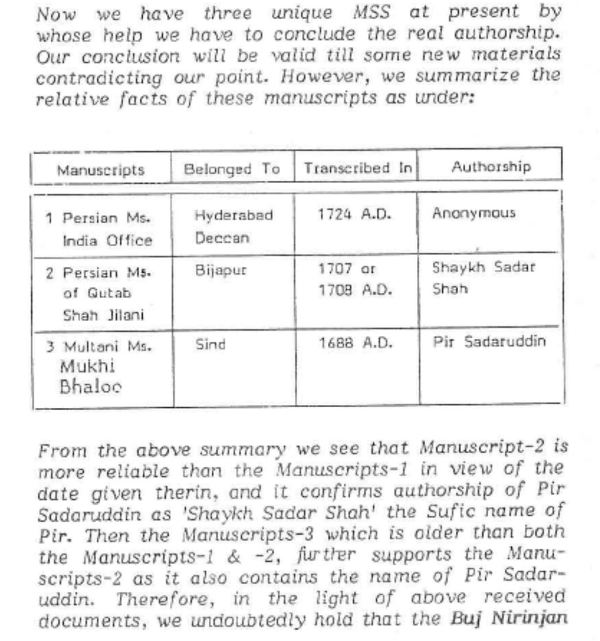I am in no way implying that we should give up our understanding of the Imam as the Mazhar of the Essence. All I am saying is that this notion is not unique to our tariqah. Other Sufi tariqahs also have the same notion.swamidada wrote:
Because other sufis believe in essence and form that does not mean we shall give up belieiving in essence of Imam, in the brackets you mentioned (which refers to the essence)
Again the notion of the Guide is not restricted to our tariqah, it is universal within Sufi Islam.swamidada wrote:
Is Imam not a Guide? You have translated,"One Prophet and one Light which is manifested in Guide". Because other sufis believe their Murshid as a guide so do we shun the word Guide for Imam?
Yes we as Ismailis interpret the Imam to be the Mawla, but other Sufis also have the notion of Mawla - Mowlana Rumi.swamidada wrote:
At least you admitted that there is word Mowla , means there is mention of Imam as Mowla in Bhuj Nirinjin.
Actually according to Satpanth Ismaili tradition, the Imam is not the inheritor of the Prophet, he is the station to be attained - nabi muhammad bujo bhai to tame pamo imam. This is the main point which differentiates this granth with other Ismaili ginans.swamidada wrote:
Ahmad's philosophy is Risalat continued and not Imamat. What other sufi Tariqas say that is not our concern. As Shia Ismaili we believe Imam is the inheritor of the Prophet as you wrote," The Prophet's inheritor (the Imam of the time).
The question is not whether what is stated in Buj Niranjan is wrong but what I am saying is that Ali is accepted by other Sufis as well in a similar manner.swamidada wrote:
Please revisit your translation and my reply to you on Ali Samaree(n)....
You have translated 'ALI SAMAREE(N) ALI PAAEIYE(N)' If you remember Ali, you attain Ali (so Ali/Hari is mentioned in this part clearly which goes against your standing on Bhuj Nirinjin).
The question is about Bhuj Nirinjin and not what Alan Faqir or Abidah sang or what is mentioned in Qawalis.
For example in one of the poems, Abida Parveen says:
"There is none with a beneficent look
Like his in the world.
From the depth of your heart
Call Ali..Then see the sorrows flee"
My arguments is not that whatever is said in Buj Niranajan is wrong or does not apply to Ismailism, it is that whatever is said in Buj Niranjan is not specific to Ismailism only - it is universal in Sufism and hence if Pir Sadardeen wrote this work, it was directed to Sufis generally and not specifically to Ismailis only.
This is very much akin to the Memoirs. It was written by MSMS for general audience, not specifically for Ismailis. On the other hand the Farmans are for Ismailis only.

